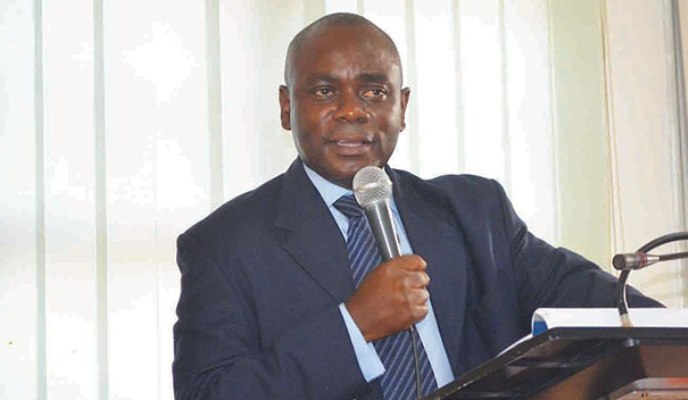Dr Fred Muhumuza is not in agreement with BoU’s approach to control inflation
Consumer prices and cash tightening will get worse before getting better, as the Bank of Uganda continues to battle rising inflation.
This comes after the increase of the Central Bank Rate to 10 per cent, the highest since August 2019, from the 9 per cent that was set a month ago.
The Deputy Governor of the Bank of Uganda Dr Michael Atingi-Ego says that for as long as inflation remained upward without an easing in the factors that influence it, it is only prudent that monetary tightening continues.
He says they recognize that 10 per cent is one of the highest rates (the highest being 17 per cent 1n 2015), but says the likely effects if inflation is not controlled will be worse.
This approach has however been criticised by economist Dr Fred Muhumuza saying it is not suitable for the current situation where the inflationary pressures are mainly due to external forces.
He says the Bank and the government as a whole should instead take an approach aimed at boosting production so that the country reduces the importation of costly goods, while at the same time increasing exports and foreign earnings.
“Monetary Policy can only be effectively used when there is a lot of money in circulation, more than the goods and services that are available because then, higher demand than surplus leads to high inflation,” Dr Muhumuza says.
Inflation for the 12 months ended September 2022 was 10 per cent, according to the Uganda Bureau of Statistics, UBOS, having risen steadily from less than 3 per cent at the beginning of the year.
The high inflation has been largely attributed to the highly-price imports especially petroleum products, cooking oil and other foodstuffs, which later combined with low harvest in the country to push up the prices of locally produced commodities.
BoU’s target is to maintain the inflation rate around 5 per cent, but this is not likely, until 2024, according to predictions. Over the last eight months of hiking the CBR, commercial banks have raised their lending rates by between 2 and 2.5 per cent as a result, but this has not resulted in a fall in inflation.
“We think that the transmission lag is anywhere between 12 and 18 months. So we’ve been tightening since around June. We expect the full impact of our tightening actions to begin coming in about 12 and 18 months,” says the Deputy Governor, adding that the ejects of the actions in the last quarter will be seen after a year.
This is also the view Dr Adam Mugume, the Executive Director, Research at the Bank. He says that while there is an impact already on foreign exchange rates and on private sector credit extension, the progress is being affected by the worsening global situation. According to Mugume, the expected results of the monetary tightening might not come as soon as expected unless the interest rate tightening in the developed economic partners like the US eases.
There is also fear that fuel prices might start rising again soon following a decision by the oil-producing cartel, OPEC and Russia, to cut production by 2 million barrels of crude per day. This is about 2 per cent of global demand.
The announcement came when crude oil prices had dropped to about 87 dollars a barrel, from 134 dollars in March.
The slowdown in economic activities has been blamed for the reduction in the spending power of Ugandans over the last three years especially following the outbreak of COVID-19.
The government of Uganda has also reported a reduction in the availability of funds to meet its budgetary requirements, further worsening the personal and household cash scarcity.
In the last quarter, for example, most public servants have not been paid for the month of September and others demanding for earlier months, while programs at most ministries, departments and agencies have not received their releases as budgeted, according to the Ministry of Finance, Planning and Economic Development.
Dr Atingi-Ego says that this has also helped support the Bank’s war against inflation.
On whether these policies will not affect economic growth which is already subdued, Dr Mugume, says the policy tries to find a balanced position.
-URN





